How a cold case was solved years after a 'terrible' mistake
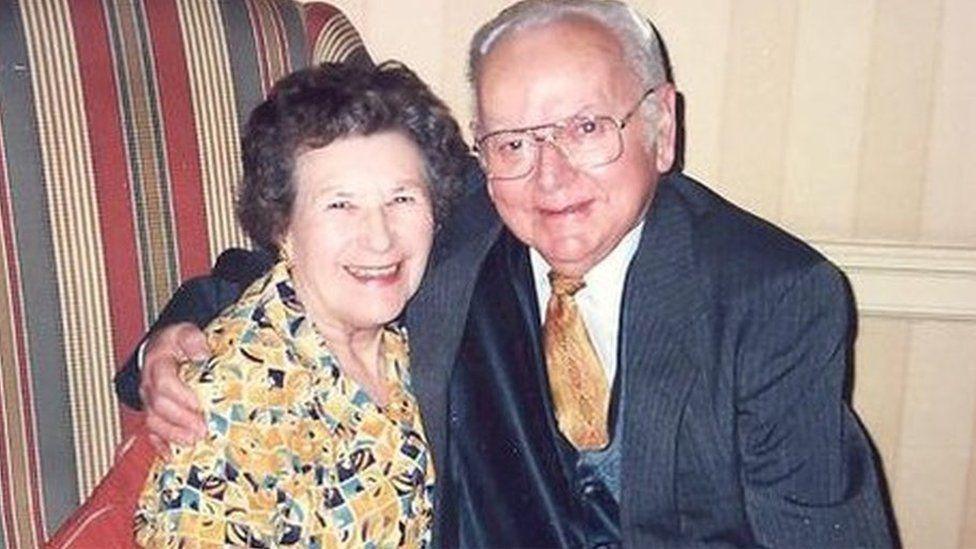
Retired postmistress Una Crown, pictured with her late husband Ron
- Published
Una Crown was found at home with her throat cut and her body set alight. At first, police believed the 86-year-old widow's death was accidental which meant her home was not treated as a crime scene - a "terrible mistake" her family feared might cost them justice on Una's behalf. So how did a few bloodied nail clippings help convict her killer?
Former postmistress Una Crown lived alone in the bungalow she once shared with her late husband Ron in the Cambridgeshire town of Wisbech.
"She was just a sweet little lady, wouldn't hurt anybody," Judy Payne, Una's niece, said.
She fondly remembers a forthright aunt who "spoke her mind, in more ways than one".
But Judy's life was turned upside down in January 2013 when her husband John tried to collect Una from her Magazine Lane home for Sunday lunch.
The curtains were drawn so he went to a neighbour to collect a spare key.
Warning: Contains distressing details
Una was discovered inside lying face down in a pool of blood in the hallway. A strong burning smell hung in the air.
"Something weird" had happened, the 999 operator was told.
Police were sent to the scene and decided Una had accidentally set herself on fire and that injuries to her neck had been caused by a tight scarf.
At the time, Simon Gledhill was an acting sergeant at Cambridgeshire Police.
"We made a terrible mistake," he has since admitted.
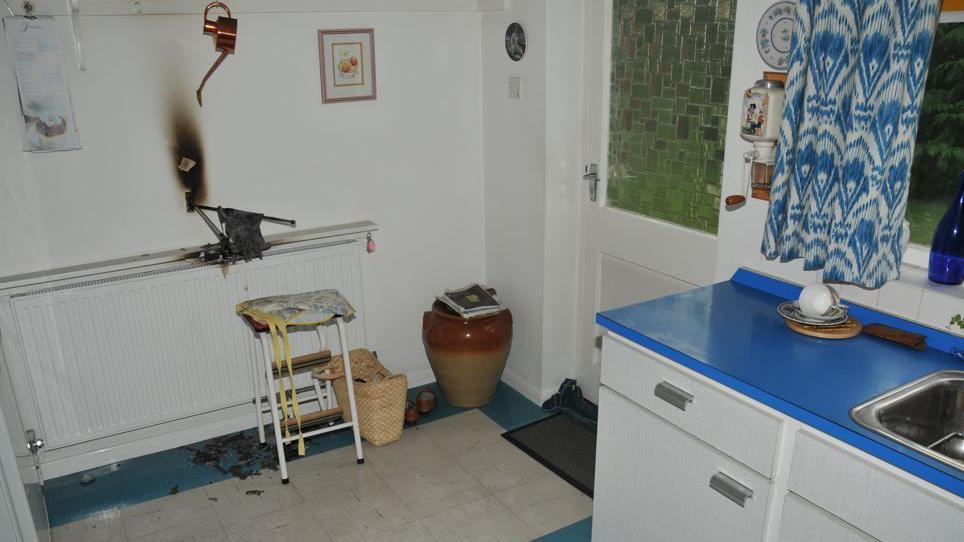
Una Crown's body was set alight after her murder
The mistake meant that Una's home was not treated like a murder scene.
Police, firefighters, paramedics and undertakers all walked around the house and some even touched Una's body to move things around.
The trial was told how paramedics rummaged through drawers and blood was transferred to a light switch.
The court heard the first person to raise suspicions about Una's death was not a police officer but a firefighter who urged them to secure the scene.
"This could be a career-defining moment and this won't be mine," another firefighter said at the time.
It was not until two days later - after a post-mortem examination - that Una's death was finally deemed suspicious.
Man found guilty of murdering widow, 86, in 2013
- Published13 February
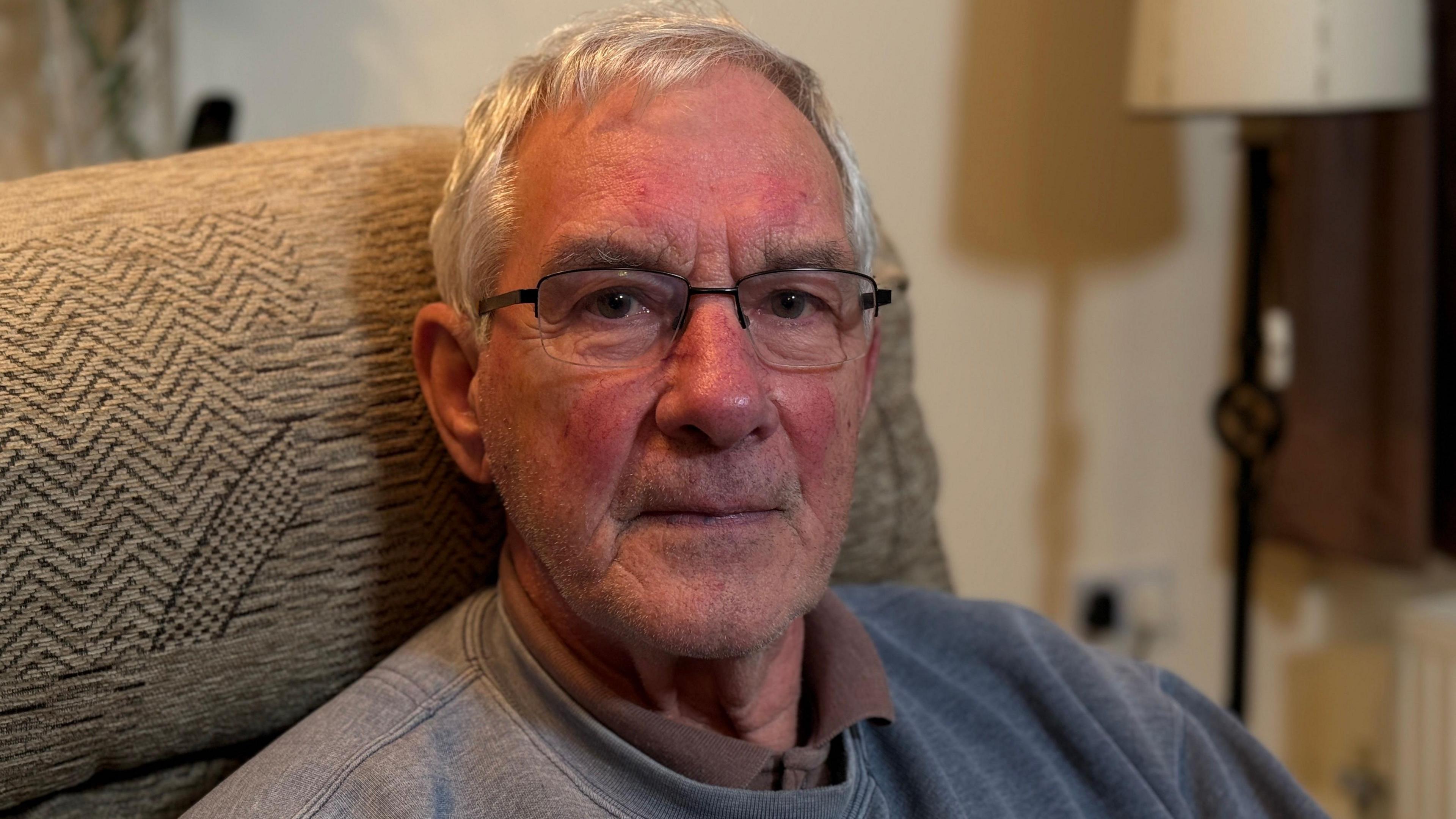
John Bolton bought the bungalow after Una's death
"There's no way anybody could fall over like that and splatter blood and finger marks on the wall," said John Bolton, who bought the bungalow after Una's death.
He told the BBC there was blood on the carpet and handprints on the wall when he first viewed the property.
Asked about police's initial assessment - that her death was accidental - Mr Bolton said: "We just couldn't believe that that's what they thought."
A professional standards review found the first police officers at Una's home "breached the standards of professional behaviour". Their actions were not, however, considered "deliberately neglectful".
A number of people - including the man now convicted of her murder, neighbour and odd-job man David Newton - were arrested, but nobody was charged and the case lingered for years as unsolved.
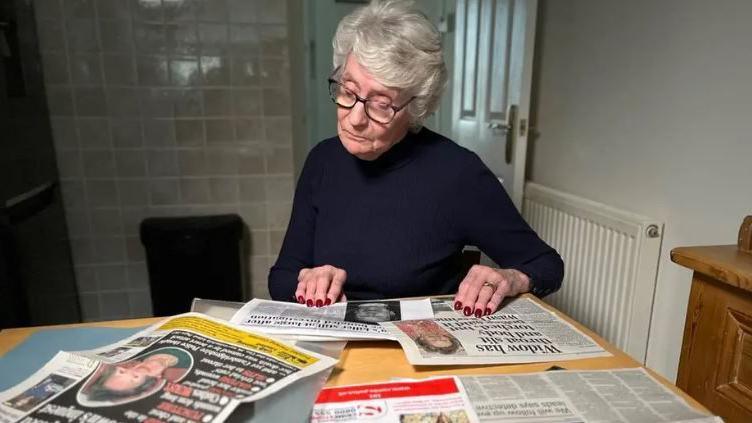
Judy Payne said she would never rest until her aunt's killer was found
Una's family feared her murderer might never be caught.
In 2023, Judy said she believed the case would have been solved without "big mistakes" in the police investigation.
The case was taken over by Det Supt Iain Moor, who acknowledged the previous errors and reiterated the force's apology to Una's family.
Then, a breakthrough.
After her death, bloodied fingernail clippings were taken from Una's body and stored.
New techniques meant police could take a fresh look at those clippings and see what new clues they might hold.
DNA was found beneath her nails which matched Newton, who had done odd jobs for Una.
"The DNA allowed us to cast doubt on Newton's claims that he hadn't seen Una on the day, or days, before her death and place him at the scene of her murder," said Det Supt Moor.
"For more than a decade he thought he had gotten away with this most horrendous crime, but [the verdict] shows you cannot hide forever."
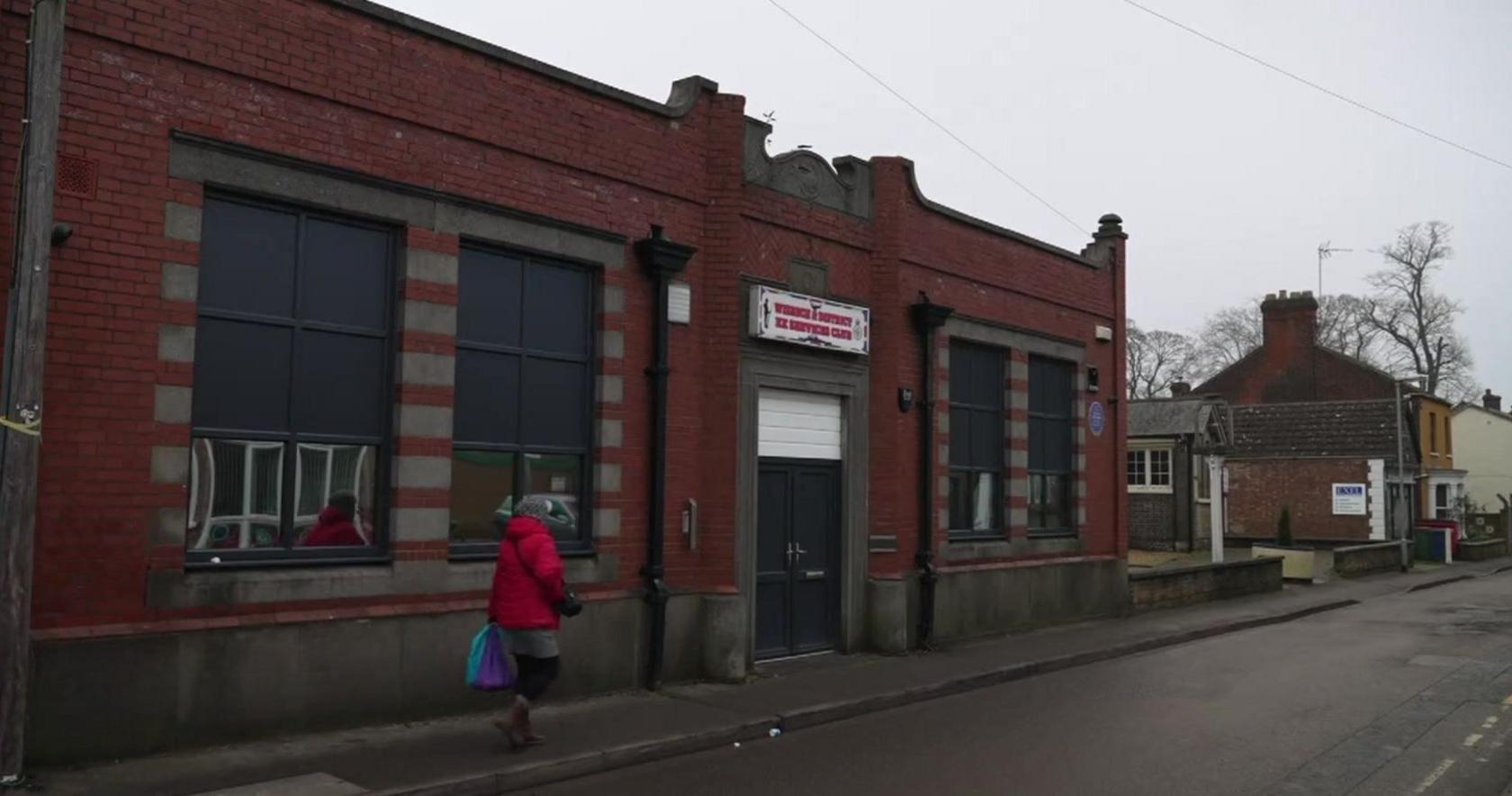
Newton is said to have taken money from Una's handbag and spent it at the former services club in Wisbech
Newton had a history of unnerving behaviour.
In 2000, he sold a raffle ticket to one of Una's relatives. Afterwards, when she thought he had left, she went to get changed in her bedroom but while in her underwear she realised he was still there.
She told police Newton said he loved her, adding she was "really frightened".
"He was probably drunk," she said. "He normally is."
Una's neighbour Paula Birch - for whom Newton also did odd jobs - told how he would sometimes go to her window while she was in bed and, despite her asking him to leave, would sometimes ignore this and "hover outside" with a cigarette.
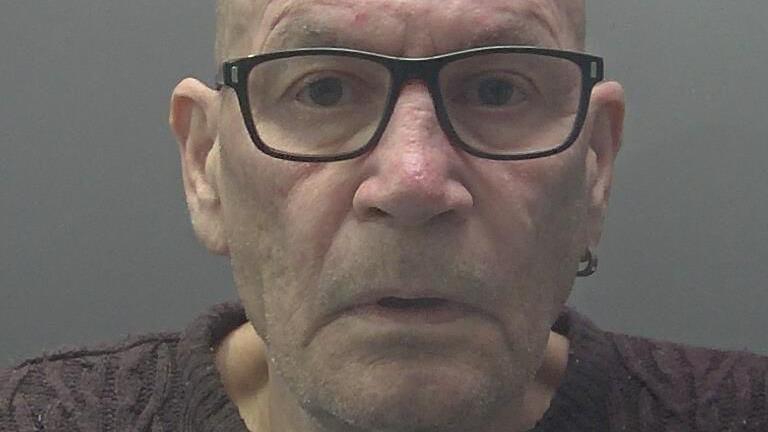
David Newton was found guilty of murder by a majority verdict on Thursday
Newton's trial started last month - 12 years after the killing - and his defence team told the court, in the absence of the jury, the issue of "other possible suspects" was a "live" issue.
The prosecution said there was no evidence she died during a robbery, instead claiming that cash was taken from her purse as an "afterthought".
The trial heard Newton, 70, of nearby Magazine Close in Wisbech, took money from her handbag and spent it at an ex-servicemen's club the day after her death.
Listen: Carer calls 999 after finding woman's body
Jurors spent about 29 hours in deliberation, longer than they heard evidence in the trial for, before finding Newton guilty by a majority verdict of 10-2.
Det Supt Moor said: "In 2013, an 86-year-old widow was robbed of her life.
"Nothing can take the pain of this heart-breaking case away, but I hope today's verdict gives Una's family the closure they deserve and the answers they have longed for.
"My thoughts are very much with them at this time."
Additional reporting by Brian Farmer
Get in touch
Do you have a story suggestion for Cambridgeshire?
Follow Cambridgeshire news on BBC Sounds, Facebook, external, Instagram, external and X, external.